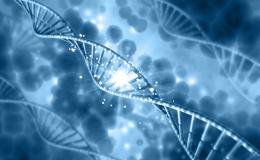World Kidney Cancer Day: Can Genetics Lead to Kidney Cancer?
June 16, 2021
Most kidney cancers are considered “sporadic,” meaning the affected patient doesn’t possess a known hereditary condition that increases their risk of developing the disease.

Five to eight percent of kidney cancer cases, however, are caused by a pathogenic gene variant (change) that increases the likelihood of developing the disease. In most cases, these gene variants are inherited and can be passed from an affected parent to their child. In recognition of World Kidney Cancer Day this Thursday, June 17th, we describe how hereditary cancer syndromes can increase the likelihood of developing kidney and other cancers and what steps you should consider if kidney cancer runs in your family.
Cancer is a disease of uncontrolled cell replication. Hereditary cancer syndromes are caused by variations in genes that change how a specific gene product functions. Some hereditary cancer syndromes are caused by pathological changes in genes associated with the control of cell replication. When a person inherits a gene variant associated with hereditary cancer, the variant is present in virtually every cell of the person’s body from birth, increasing the likelihood that one or more cells will accumulate enough additional gene variants over time to become cancerous and divide uncontrollably. Many hereditary cancer syndromes are caused by inheriting only one copy of a pathological gene variant, meaning that a child typically has a 50% chance of inheriting a hereditary cancer syndrome from an affected parent.
There are several characteristics that are more commonly associated with hereditary cancers. Hereditary cancers are usually diagnosed at a younger age than sporadic forms of cancer, and the tumors may respond better to different treatments. Additionally, patients with hereditary cancer may have a strong family history of the disease, particularly on one side of the family. Hereditary forms of the disease are also more likely to occur in both organs if two organs are present and are more likely to recur after remission. Some types of cancer are also more likely to be inherited.
Several hereditary cancer syndromes can increase the likelihood of developing kidney cancer. The most common type of kidney cancer is renal cell cancer, which originates in the linings of the small tubules of the kidney. The following inherited syndromes can increase the risk of developing renal cell cancer and other conditions, including other types of cancer:1
- von Hippel-Lindau disease (VHL) is associated with renal cell cancer and cancerous and noncancerous tumors of the central nervous system, retina, pancreas, adrenal glands, and other tissues. This disease is caused by pathological variants of the VHL gene.
- Hereditary leiomyomatosis and renal cell cancer (HLRCC) causes a unique form of renal cell cancer and may also cause leiomyoma skin lesions and uterine fibroids. This syndrome is caused by variants of the FH gene.
- Birt-Hogg-Dubé syndrome (BHD) is associated with renal cell cancer and may also cause the development of skin fibrofolliculomas, cysts in the lungs, and/or a spontaneous collapsed lung. This syndrome is caused by changes in the FLCN tumor-suppressor gene.
- Hereditary papillary renal cancer (HPRC) increases the odds of developing papillary type 1 kidney cancer and is caused by pathological variants of the MET gene.
Ultimately, your genetics can increase your risk of developing kidney cancer. If you have a family history of kidney cancer, particularly on one side of your family, it is important to visit your doctor for a genetic risk assessment. If your doctor feels that genetic screening is warranted, you may be referred to a genetic counselor for guidance through the testing process. Genetic counselors are specifically trained to assess genetic risk based on family history, assist patients throughout the genetic screening process, and help patients fully understand their genetic screening results.
Patients harboring a hereditary cancer gene variant can proactively monitor for disease and mitigate risk based on the specific risks conferred by a particular variant. Screening results may also have implications for members of the patient’s family. Importantly, early cancer detection can significantly influence disease prognosis and future quality of life. Kailos Genetics developed the ExpedioTM Hereditary Cancer Screening to detect pathological variants in 33 genes associated with hereditary cancer syndromes, including VHL, FH, and FLCN. Click here to learn more about ExpedioTM, or contact us with any questions you may have regarding genetic screenings.




